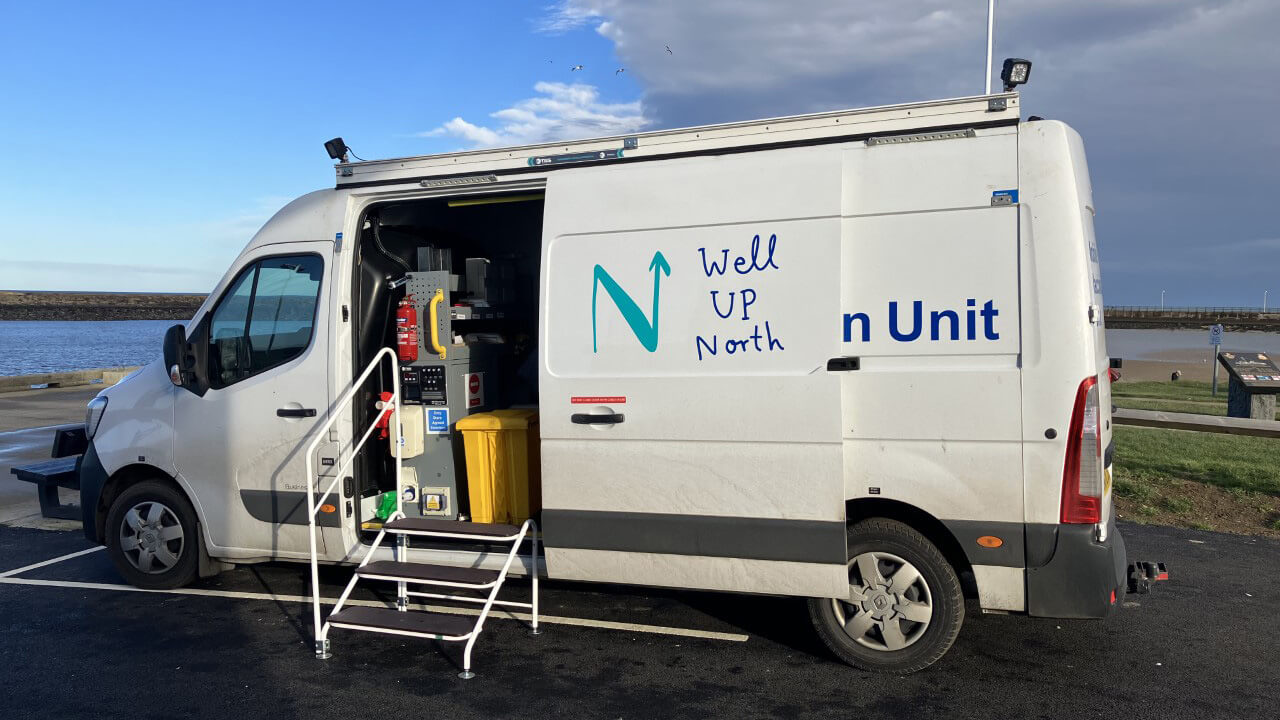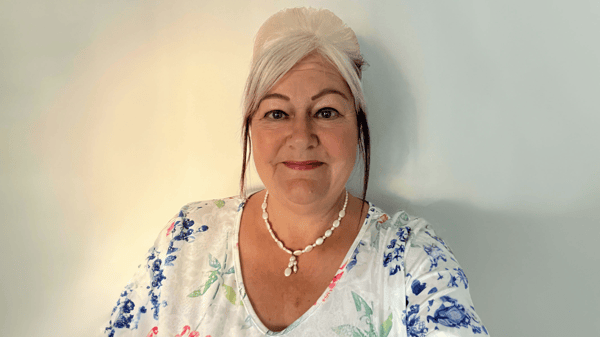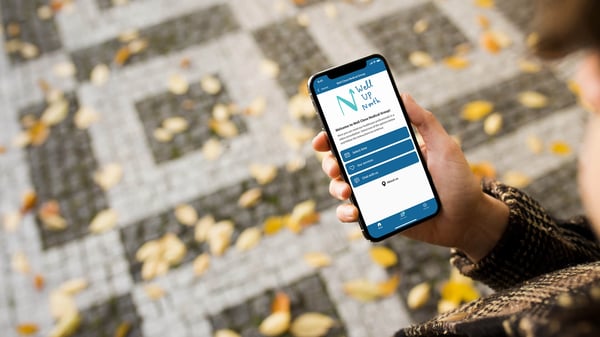Finding simple solutions for a unique geographic area
David Thorne, Director of Transformation at Well Up North PCN tells us how they came to develop the Well Up North Social Prescribing app.
David’s been in NHS roles for over 40 years and has held senior positions within hospitals and commissioning organisations as well as in healthcare industries.
An unusual geographic area
Before considering the rationale behind the app, it’s important to understand the geographic area. Well Up North (WUN) is in North Northumberland with 9 practices employing over 300 staff caring for around 80,000 patients. The region the WUN PCN serves covers more square miles than Greater London with a mean population density of 9 people per square km. For context, the mean population density for England is 434 people per square km.
Predominantly rural, and including seaside communities, sheep farming areas and small market towns, the area has a uniquely homogenous and stable population, many of whom live 60 miles or more from the nearest A&E.
The clinical caseload is no different to that of any other region of the UK but is compounded by the geography. Combine rural isolation, poor access to public transport/internet with the standard caseload of cancer, long-term conditions, pregnancy, mental health, contraception and so on, and the needs of this rural population become more challenging to meet.
Understanding the problem and finding the solution
David works with practices to create change - from digital solutions through to the use of buildings. David says that he helps to create change by asking clinicians, quite simply, “tell me about a time when:
- You were frustrated you didn’t have something
- You were with a patient and felt something could work in a different way if only we did things a little differently
- You wished you had something or somebody with a certain function or skill.”
David’s job is to work with clinical colleagues to make the changes happen that clinicians and patients desire.
Patient-first – finding solutions for real patients with real problems
David talks a lot about patients, not in a broad sense, but in terms of individual patients with actual problems. The reason this is so important and something that David feels doesn’t happens as it should at a national level, is that only by understanding the real problems of real patients, can you begin to find solutions that really work.
Which is why Well Up North run monthly open access clinics for women with menopausal issues. The practices increasingly use digital systems and telemedicine “pods|” to enable patients to access services in accessible, safe, ways that suit people's varied lives. The latest team development is the launch of Cancer Support Workers and that build upon the team's work supporting patients and families with Dementia and related conditions. A focus on real problems and real solutions means responding to the needs of local communities in ways that make simple sense.
If the patients can’t come to you, then you must go to them
One of the many innovations Well Up North has introduced entails a well-equipped Well Up North van travelling to the communities least likely to seek healthcare. They have run two programmes: SeaFit and FarmFit. The former involves the van going out to harbourside fish quays to offer health checks to fisherman and their families. The latter goes out to sheep markets and agricultural shows to offer health services to farming families.
Because of their work and lifestyles, these communities are often less likely to engage with healthcare, meaning that conditions that could easily be captured early and managed, can go unchecked. The mobile approach enables a team that may include a GP, nurse, physiotherapist, social prescriber and health and wellbeing therapist to engage these patients and ensure they get the appropriate care. The team can undertake routine health checks such as checking blood pressure, taking urine samples or advising on retinopathy tests. They are also able to book follow-up appointments there and then and offer health and wellbeing advice.
Whilst the notion of a van may seem ‘low-tech’, plans are in place to increase its technological equipment although, as David is keen to point out, sometimes low tech is the best answer to the problem. And this is all about finding the best solution, not the newest, shiniest thing.
The best technology for the job
David has been involved in all sorts of national projects but feels that all too often, teams are attracted to the latest technological solution and try to make this work to fix the problem. By taking the clinician and patient-first approach David is of the belief that you’re better able to seek solutions that whilst simple may solve the problem better.
The biggest constraints to change can often be the cost of change, not only in terms of the initial purchase, but the practicalities of implementation and in particular upskilling and training teams to use new solutions. There are practical challenges to implementing any large-scale change programme requiring staff training that takes people away from their caring roles, especially in such a rural area. David is always conscious of this when trying to change ways of working or implementing new solutions.
Give a man a fish and you feed him for a day; teach a man to fish and you feed him for a lifetime
Well Up North’s Social Prescribing and Health and Wellbeing Teams are already well-established and have proved to be very successful. In its first year of operation the team had contact with around 5% of the entire adult population served by the PCN.
The team were keen to develop supportive tools that would help patients achieve confident management of their health and wellbeing and long-term conditions. Weight-loss patients are a prime example, when someone has done really well on a weight loss programme they should be able to continue on their own with confidence in their ability to sustain their progress. The team's ethos is that such supported self-management is fundamental to success, for the team's capacity, but more so for showing their work helps patients to take the lead in their own health improvement and independence.
The team were keen to explore a solution that enabled patients to feel supported but in their own words ‘they needed to be able to fish for themselves’ and the service needed to provide them with the resources that would enable them to do this. Which is when David came across Visiba at an NHSE ‘dragon’s den’ style event.
The Well Up North Social Prescribing app
In Visiba David saw an organisation that could work with his team to develop a solution that would work to meet the local population’s very particular needs. Visiba’s flexible approach and the notion that the Well Up North app could be fully tailored to local needs were a huge appeal.
Knowing that the Social Prescribing and Health and Wellbeing Coach Teams knew the ins and outs of their patients and pathways best, David was 'hands off' and the team developed the app directly with Visiba. This also gave the team ownership and the opportunity to develop a solution that would really meet their needs in enabling patients to ‘fish for themselves’.
The app brings together all of the information patients might need around social prescribing and the wide area of health and wellbeing, from the services offered within their own practice (which they can self-refer into using a form on the app) to other services and groups in the region. If they’re not sure what service might be best for them, they can use the app to message the team who will contact them directly. Patients can self-serve and whilst some might need in-person support, others might find what they need directly through the app.
An implementation that exceeded expectations
In David’s experience, implementations rarely run smoothly and often involve a lot of hassle for teams. But in this instance, he and the team have been pleasantly surprised. The feedback so far is that people are using the app, finding it easy to use and a great way to find out about their local services - ‘it just works!’.
This is possibly in part because the team worked so closely with Visiba to develop the app but also, as a result of this, it’s right for their community. It ‘looks like ours, and that it’s designed for us’. From the outset David has been keen to point out that the Well Up North community is quite unique and that it needs not only practical solutions to practical problems but that these need to be ‘right for us’.
In the first week of going live, 63 patients used the app to ask for help. We’re really excited to see the difference the app can make for patients in this unique area.


